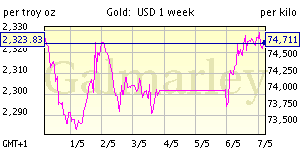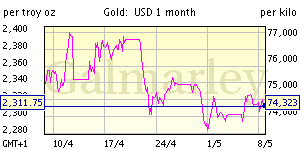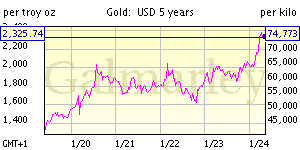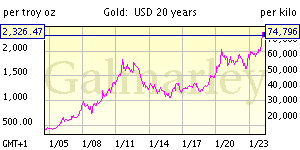Musical Chairs
Unlike the public, all major governments are now aware of the fact that the next world currency system will have some sort of gold backing. As the following article points out, this will lead to nations who have allowed their gold reserves to be held by western governments, to ask that their gold be sent home. Only one problem: does that gold even exist? Many, including myself, suspect that it does not.
These are the things wars are made of. Suppose the US and Britain can't produce the gold it owes Venezuela, India and others? What happens then?
The bottom line is this: The gold market is like a game of musical chairs. There are at least 100 times more "claims" on gold than there is actual physical gold in existence. If/when everybody shows up at the same time demanding their gold, somebody gets left out. That's when the music stops and the shooting begins.
Of course, the western nations do have an alternative: Make up some "weapons of mass destruction" type story about those you owe money to, and then invade them in the name of freedom/democracy. Then, all of a sudden, there is no need to return the gold to those you owe money to, and then, no one discovers that the emperor actually has no clothes.
Of course, Chavez knows this, but he also knows that should the US attack, he has Russia and China in his corner who are more than willing to use Venezuela as a pawn to expose the achilles' heel of the west.
Can anybody say "World War 3?" And you thought gold wasn't important! Ha!
Gold, politics, and Venezuela
Gold Research Analysis - August 27, 2011
Markets were abuzz last week with Chavez’s recall of Venezuela’s gold reserves not currently held in Caracas. Bulls are excited by the thought that withdrawing some 150-200 tonnes from the Bank of England and the bullion banks will force a bear squeeze on the LBMA, where gearing between the physical and paper markets are assumed to be 100 to 1. This stretches the relationship between paper gold and physical gold even further. They are also excited by the possibility that others might follow Venezuela’s example.
These concerns are real and should not be dismissed lightly, and the announcement could not have come at a worse time for LBMA members, who also face being caught up in a European banking crisis. Fear dominates, but the real trigger for this market emotion, and therefore its outcome, is global politics. Chavez is not just recalling his country’s gold to protect its integrity, he is waging an idealist’s war against the capitalist system and the US in particular. This is why he has threatened to move gold and foreign reserves to the countries he says he trusts, principally Russia and China, and why he is proposing to nationalise Venezuela’s gold mines.
He has picked the capitalist system’s weakest point. He has been told by his central bank that the Fed, the BoE and the Bank for International Settlements hold gold for the whole central banking community in the main trading centres, and that much of this gold exists only as a ledger entry and is not backed by physical metal. Whether or not Venezuela’s gold is held in these fractionally-backed sight accounts, or in earmarked accounts where the gold is held separately, we do not actually know; but there is little doubt that this move is designed to encourage other central banks to demand that their gold is also repatriated.
Chavez has a point. It is a fair bet that the International Monetary Fund’s 2009 sales of 212 tonnes of gold to other central banks are held in sight accounts as a condition of sale. India, Mauritius and Sri Lanka, who bought this gold, must be very nervous. Interestingly, India and Sri Lanka are also associated with the Shanghai Cooperation Organisation, which was set up by China and Russia with the eventual goal of establishing an Asian supranational state.
This little-known connection is extremely important. The SCO even has a website. The central banks of its member states, observer states and dialogue partners are nearly all buying gold, overtly or covertly. This is more likely to be a co-ordinated economic attack on the West than just a purely random event.
Until Chavez’s intervention, China and Russia – who run the SCO – were gently turning the screws on the gold market: Russia by announcing regular purchases and China by encouraging its citizens to buy. They appear to have put the word about through the SCO that gold will have an important role in the SCO’s future, and those involved should have some. This is a world Chavez wants to be part of, and by removing his country’s gold from capitalist markets he is declaring his credentials.
Underlying this extreme socialist action is the Marxist belief that capitalism will destroy itself. Chavez believes it is his duty to give it a helping hand.
![[Most Recent Quotes from www.kitco.com]](http://www.kitconet.com/images/quotes_7a.gif)






